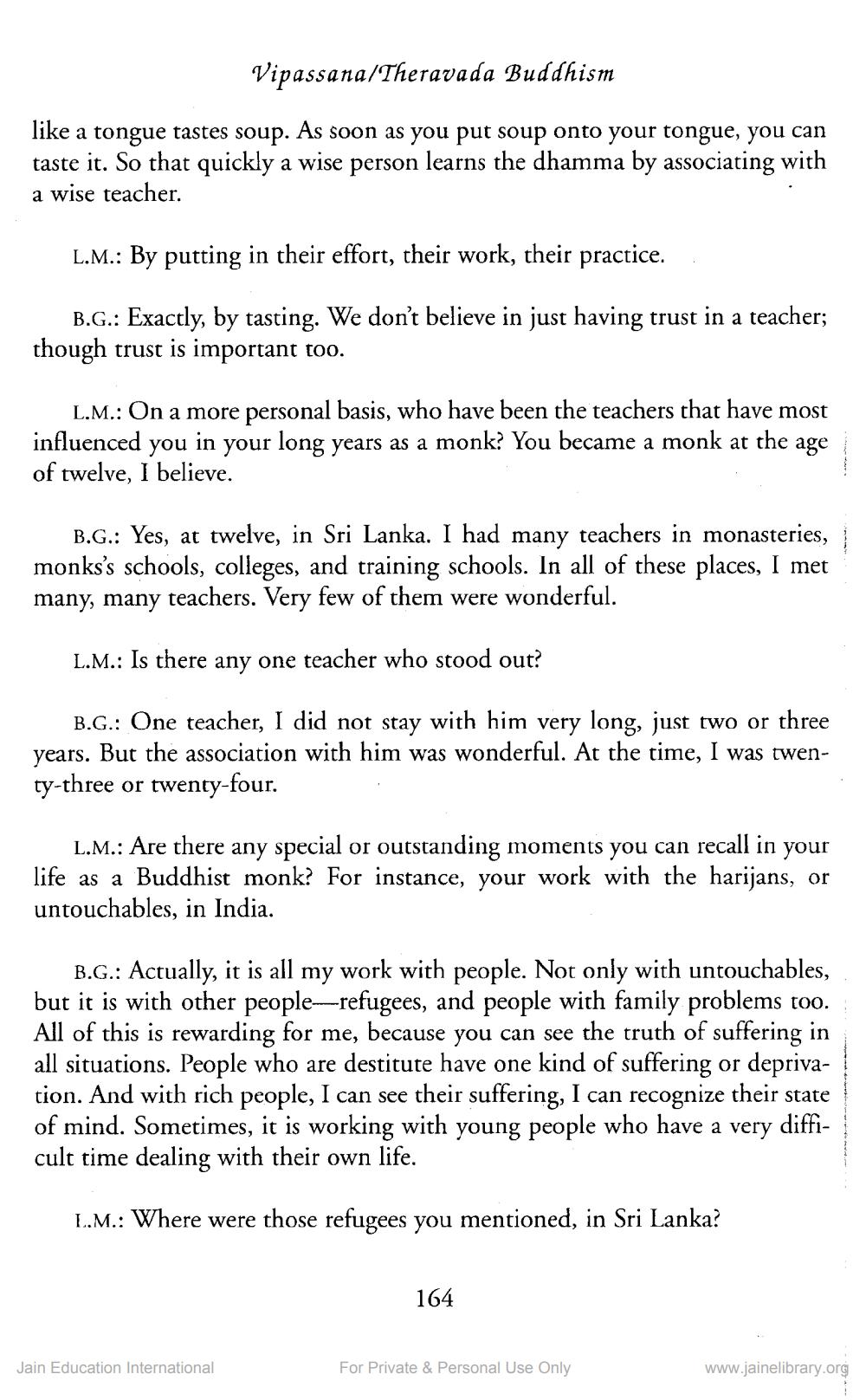________________
Vipassana/Theravada Buddhism
like a tongue tastes soup. As soon as you put soup onto your tongue, you can taste it. So that quickly a wise person learns the dhamma by associating with a wise teacher.
L.M.: By putting in their effort, their work, their practice.
B.G.: Exactly, by tasting. We don't believe in just having trust in a teacher; though trust is important too.
L.M.: On a more personal basis, who have been the teachers that have most influenced you in your long years as a monk? You became a monk at the age of twelve, I believe.
B.G.: Yes, at twelve, in Sri Lanka. I had many teachers in monasteries, monks's schools, colleges, and training schools. In all of these places, I met many, many teachers. Very few of them were wonderful.
L.M.: Is there any one teacher who stood out?
B.G.: One teacher, I did not stay with him very long, just two or three years. But the association with him was wonderful. At the time, I was twenty-three or twenty-four.
L.M.: Are there any special or outstanding moments you can recall in your life as a Buddhist monk? For instance, your work with the harijans, or untouchables, in India.
B.G.: Actually, it is all my work with people. Not only with untouchables, but it is with other people refugees, and people with family problems too. All of this is rewarding for me, because you can see the truth of suffering in all situations. People who are destitute have one kind of suffering or deprivation. And with rich people, I can see their suffering, I can recognize their state of mind. Sometimes, it is working with young people who have a very difficult time dealing with their own life.
L.M.: Where were those refugees you mentioned, in Sri Lanka?
164
Jain Education International
For Private & Personal Use Only
www.jainelibrary.org




